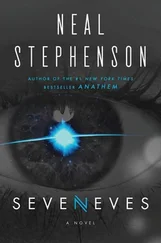Zula relayed that into the phone and then handed it back to the taxi driver, who listened for a few moments, then snapped the phone shut and effected a course change. Ten minutes later they had pulled up in front of a little storefront piled high with leather goods. Sokolov and Zula got out of the taxi, leaving Csongor in the vehicle with his laptop.
As Sokolov had come to expect, this was the most sensational thing that had happened in this district of Xiamen since Zheng Chenggong had chased away the Dutch pirates and so, as they shopped for luggage, they were enjoyed by a vast audience of fascinated neighbors, aged family members of the proprietors who had been hastily summoned from upstairs via phone, random passersby, flabbergasted carters, and professional beggars who carefully tracked their every movement, talked about them, and found sudden humor in details so minor that Sokolov was not entirely sure what they were reacting to. He quickly settled on a leather man-purse that looked as if it could comfortably accommodate several currency bricks, with plenty of room left over for some ammo clips and a couple of stun grenades, and he was about to pay the quoted price when Zula intervened and proposed a somewhat lower figure. This led to haggling, which, as it turned out, Zula was good at. Not in the sense of being an absolute bitch about it but in the sense of remaining on good terms with the proprietor even while firmly insisting that the price was too high. And so finally Sokolov was granted an unbroken stretch of twenty or thirty seconds in which he could actually turn his attention to the neighborhood and try to gather in some impressions of the place.
All the buildings were made of concrete, or perhaps bricks or stone blocks with mortar troweled over them. It didn’t really matter. The point was that the walls would stop low-velocity rounds and shotgun pellets, and you couldn’t kick your way through them. They would not burn very easily. Depending on how much rebar had been used—and his guess was that the builders had cut plenty of corners in that department—these structures, compared to wood- or steel-framed ones, would be more vulnerable to collapse under the exceptionally stressful conditions that frequently obtained when men like Sokolov were earning their pay. They were four or five stories high, which meant that they did not have elevators and that, if it was like Europe, the highest floors would house the poorest people. Ground floors tended to be retail; upper stories were offices (on larger streets) or apartments (smaller). Apartments quite frequently sported small balconies, but these had invariably been retrofitted with grids of steel bars, even on the upper floors—apparently burglars here climbed walls and abseiled from rooftops. The grids themselves looked eminently climbable and so might be handy for gaining access to a roof when doors were locked, or to depart from a building when stairwells were filled with products of combustion or men with guns who wanted to kill him. Some ropes might come in handy. But really, when wasn’t that the case?
Street widths ranged from one meter (pedestrians only) to perhaps eight meters (all traffic).
Wiring was external and informal in the extreme. Some of the bundles strung across streets were as thick as his torso, and it was obvious that they had begun as one individual wire that had accreted more wires over time.
“Okay,” Zula said, “one hundred.” She was looking at him. So was the shopkeeper.
Sokolov pulled a C-note equivalent ten-stack from his pocket, peeled off a bill, and handed it over. The man-purse was his. The audience began to disperse. Show was over.
Back in the taxi, Sokolov said: “Same procedure. Buy some other stuff.”
“What would you like to buy?”
“Does not matter.”
“Tea? There seem to be a lot of people selling tea.”
“Tea then.”
“Teapot to make it in?”
“Yes.”
“I need to hit a drugstore.”
“Why?”
“Because I’m a girl.”
“Fine. Hit drugstore. Repeat procedure.”
They repeated procedure for a while. Zula bought tea from a small, energetic woman in blue boots and a tea service from an old lady in a side alley. It became somewhat routine, and Sokolov even began to feel somewhat comfortable standing in the open bays of the shops as Zula haggled. It seemed to work for Csongor, who reported that he was gathering more data the whole time. But Sokolov did not see much more during the last hour than he had during the first ten minutes. The physical layout of these neighborhoods did not vary much from one block to the next. But it would be easy to get lost, and only a lifelong resident would be able to find his way out. The hazy conditions made it difficult to get a fix on the location of the sun, so celestial navigation was out.
He had the taxi driver take them back to where they’d started, and he slipped the concierge a C-note wad. Then they walked home along the waterfront, giving Sokolov a chance to see how the ferry lines operated and Csongor a chance to wardrive some of the Wi-Fi hotspots in the terminals’ various waiting rooms and snack bars. When Colonel Sanders hove into view, Sokolov called ahead to warn his squad that they were coming, and when they reached the office building, the steel door was already open for them.
“Home sweet home,” Zula said.
HOME SWEET HOME looked a bit different. Some chairs—injection molded, bright pink—had been brought up. Peter was ensconced behind a brand-new computer, still reeking with the ammoniacal smell of new electronics. To all appearances, this was connected to the Internet.
“I worked out a deal with Ivanov,” he explained, after Zula had taken another stand-up sponge bath and grabbed a slice of pizza (for there was a Pizza Hut somewhere within delivery range). “He’s got a sysadmin back in Moscow that he trusts. This machine is connected over a VPN to that guy’s system in Moscow, so he can monitor my use of the Internet and make sure I’m not sending out any distress calls.”
Zula was divided between thinking that this was a clever solution and finding it weird that Peter would put up with it. And indeed the look on his face was not proud. But he had an explanation ready. “We are totally handcuffed if we don’t have access to Internet,” he pointed out. “We can’t even use Google Maps. I’ve been able to make a lot of progress this way.”
“Such as?”
“Well, for one thing, I downloaded a copy of the REAMDE executable that someone posted on a security blog,” he said. “And I decompiled it.”
“How’d that work for you?” she asked. Peter was proud, almost desperately so, of what he’d done, and she felt obligated to let him speak of it.
“Well, I was afraid that they might have used obfuscated code,” he said, “but they didn’t.”
“Meaning?”
“Some compilers will mess with the object code to make it harder to decompile. Whoever created REAMDE didn’t do that. So I was able to get some pretty clean source code files. Then I looked for unusual character sequences in those files and googled them.”
“You wanted to see if anyone else had gone down the same path before you,” Zula said, “and posted their results.”
“Exactly. And what I found was a little unexpected. I found a security discussion group where someone had indeed posted some decompiled code that matched what I got. But it wasn’t from REAMDE. It was another, older virus called CALKULATOR that made a little bit of a splash about three years ago.”
“Okay,” Zula said, “so you’re thinking that the creators of REAMDE recycled some of the source code from CALKULATOR.”
“They must have. There’s no way this could have happened by accident. And the interesting thing is that the CALKULATOR source code was never found—it’s never been posted.”
Читать дальше





